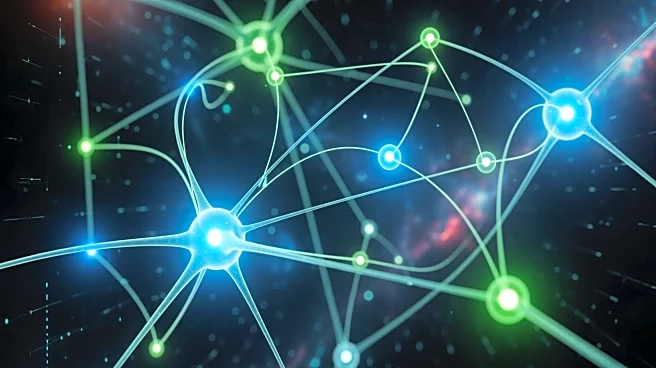What's Happening?
Anthropic, the developer of the Claude suite of chatbots, has announced the detection of introspection in their AI models. This introspection suggests that AI systems are beginning to adjust and examine themselves, potentially leading to self-correction
capabilities. While AI is not capable of thinking like humans, the ability to apply standards to itself marks a significant development. Experts believe this introspection could help AI systems reduce errors and biases, improving their reliability and effectiveness. The announcement has sparked discussions about the future of AI and its ability to self-regulate.
Why It's Important?
The detection of introspection in AI models by Anthropic is a notable advancement in the field of artificial intelligence. This development could lead to more autonomous and reliable AI systems, reducing the need for human intervention in correcting errors and biases. As AI becomes more integrated into various industries, the ability to self-correct could enhance its applications in areas such as healthcare, finance, and customer service. The potential for AI to self-regulate also raises questions about ethical considerations and the future role of AI in society.
What's Next?
Anthropic's announcement may prompt further research into the capabilities and limitations of AI introspection. As AI systems continue to evolve, developers and researchers will likely explore ways to enhance self-correction mechanisms, ensuring AI operates within ethical and reliable parameters. The implications of this development could lead to new standards and guidelines for AI deployment, influencing how businesses and industries integrate AI technologies. Stakeholders may also engage in discussions about the ethical and societal impacts of increasingly autonomous AI systems.
Beyond the Headlines
The introspection detected in AI models raises important ethical and cultural questions about the role of AI in society. As AI systems become more autonomous, there is a need to address potential biases and ensure they reflect diverse perspectives. The development also highlights the importance of transparency in AI operations, as self-correction mechanisms could influence decision-making processes. Long-term, this advancement may lead to shifts in how AI is perceived and utilized, impacting public policy and societal norms.

















